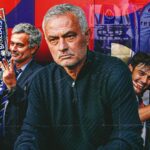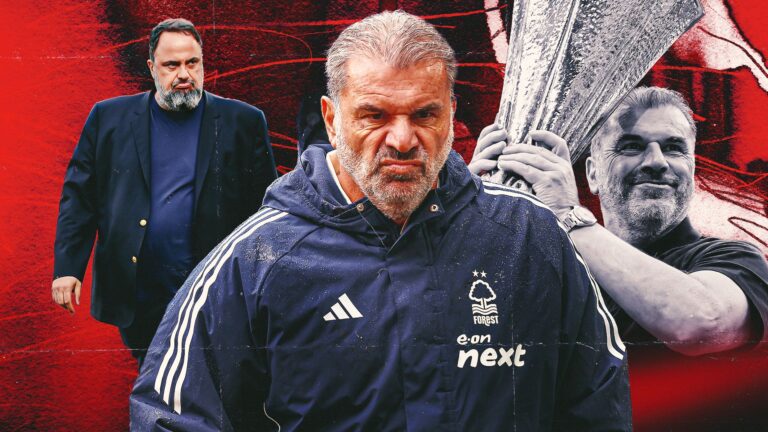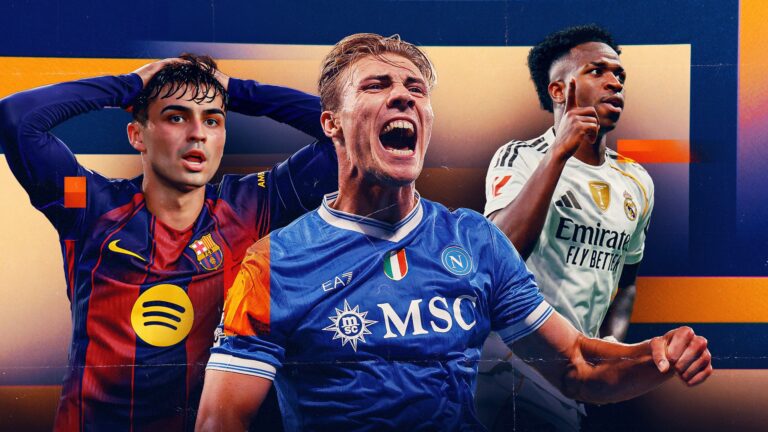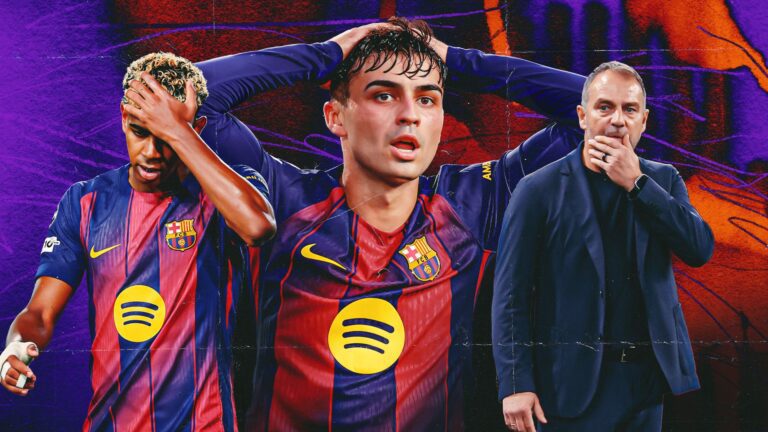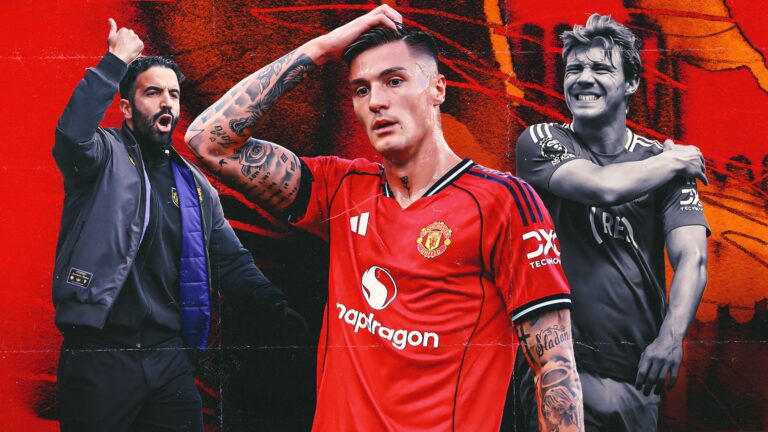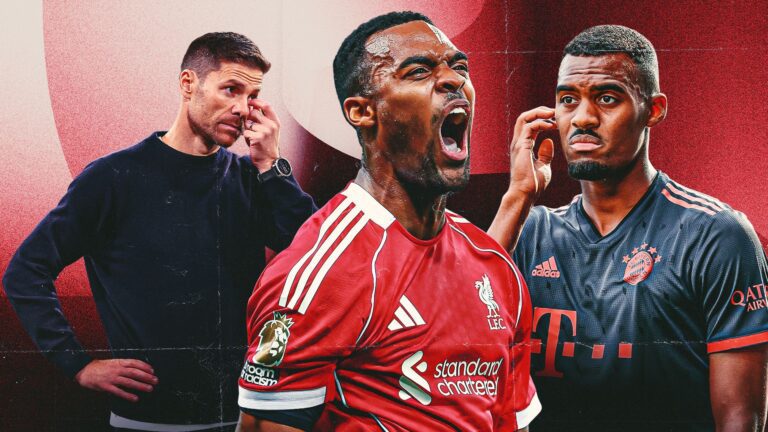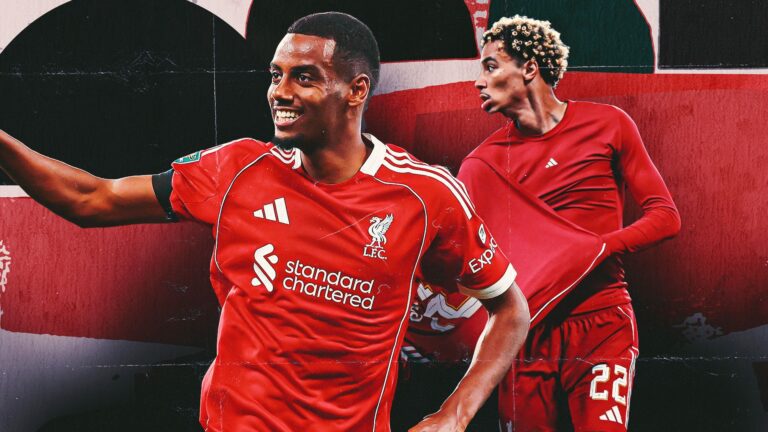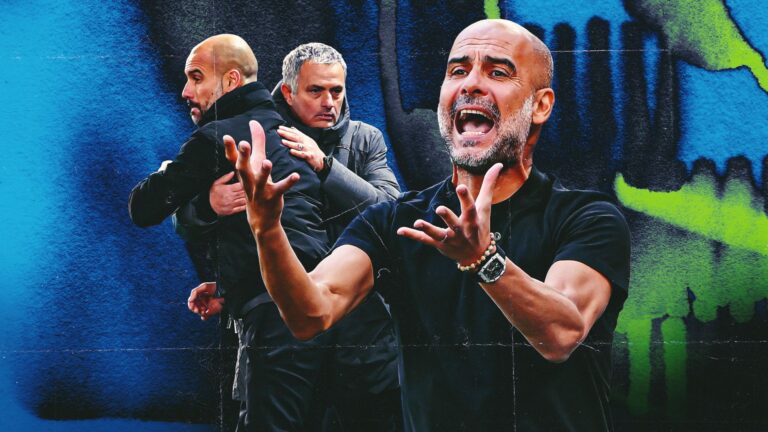During this year in Turkey, he had continued to court controversy like no other figure in football, but he failed to win a trophy, which is why Fenerbahce decided that the outspoken Portuguese was more trouble than he was worth and, thus, dismissed him on August 29 – two days after the 1-0 loss in Lisbon.
And yet less than three weeks after his sacking, Mourinho was asked to return to the Estadio da Luz, with Benfica president Rui Costa having come to the rather surprising conclusion that the best man to replace Bruno Lage was the coach he’d just outwitted to reach the Champions League proper.
Consequently, Mourinho is not only back at Benfica, he’s also back where he belongs – at least as far he’s concerned.
"I was lucky in my career to coach a lot of giants: Real Madrid, Inter, Manchester United and Chelsea. Benfica is also a giant and a giant club entails giant responsibilities, giant expectations – it’s all giant," Mourinho told UEFA. "But it’s the kind of challenge I need."
Whether it’s the kind of challenge he can still overcome remains to be seen. Indeed, as the 62-year-old prepares to lead the Eagles out in Tuesday’s Champions League clash with Chelsea at Stamford Bridge, the scene of some of his most memorable triumphs, Mourinho is undeniably under pressure to prove that he can still cut it at the very highest level.







During this year in Turkey, he had continued to court controversy like no other figure in football, but he failed to win a trophy, which is why Fenerbahce decided that the outspoken Portuguese was more trouble than he was worth and, thus, dismissed him on August 29 – two days after the 1-0 loss in Lisbon.
And yet less than three weeks after his sacking, Mourinho was asked to return to the Estadio da Luz, with Benfica president Rui Costa having come to the rather surprising conclusion that the best man to replace Bruno Lage was the coach he’d just outwitted to reach the Champions League proper.
Consequently, Mourinho is not only back at Benfica, he’s also back where he belongs – at least as far he’s concerned.
“I was lucky in my career to coach a lot of giants: Real Madrid, Inter, Manchester United and Chelsea. Benfica is also a giant and a giant club entails giant responsibilities, giant expectations – it’s all giant,” Mourinho told UEFA. “But it’s the kind of challenge I need.”
Whether it’s the kind of challenge he can still overcome remains to be seen. Indeed, as the 62-year-old prepares to lead the Eagles out in Tuesday’s Champions League clash with Chelsea at Stamford Bridge, the scene of some of his most memorable triumphs, Mourinho is undeniably under pressure to prove that he can still cut it at the very highest level.
Mourinho has always claimed that while his enemies in the game can “steal everything” from him, nobody can take away the “story” he has created – and he’s got a point.
The Portuguese is one of the most compelling characters in football history – and also one of its most successful. He really has seen and done it all, the only manager to have won all three current UEFA club competitions.
For all the accusations of arrogance levelled against him, one can hardly blame him, then, for considering the room full of trophies, medals and mementos that he has in his home as a kind of “museum”. After all, when it comes to retelling the story of modern football, Mourinho’s name will feature frequently.
However, he is absolutely adamant that he’s not done yet, that there are still a few chapters to be written. “When you’re still working,” Mourinho says, “when you still have your ambitions, what was done before doesn’t count.”
It’s a sentiment that explains why he jumped at the opportunity to make an immediate return to club football with Benfica.
Mourinho himself thought that when he finally returned to work in his native Portugal, it would be to take charge of the national team. Even from the outside, it looked like the logical step – and particularly at this stage of his life, and his club career.
As a younger manager, Mourinho wasn’t sure if he would always have the same fire burning inside him – but former Manchester United manager Sir Alex Ferguson once assured him that, for men like them, it never goes out. And Mourinho has found that to be the case.
After taking charge of his first Benfica match on September 20 – just under 25 years after his last – Mourinho realised that while the time had flown by, it had not changed his “nature”, “passion”, or “way of being”.
And there can be no arguments on that front.
When Mourinho returned to Italy to take charge of Roma in 2021, 11 years after his treble triumph at Inter, he claimed that he was a changed man. He’d matured, he insisted, and no longer went looking for arguments.
However, in his very first press conference as Roma coach, he immediately opened fire on a wide range of targets, including Didier Deschamps, Antonio Conte and even Luke Shaw. Then, just over a month into his first season in the Italian capital, he received the first of his seven red cards with the Giallorossi.
During his two-and-a-half-year spell at the Stadio Olimpico, Mourinho showed that when it comes to firing up a fan base, he has few rivals, while he also led a success-starved club to back-to-back European finals.
He won the first, too, against Feyenoord, but after losing the second, to Sevilla, he waited around in the carpark at the Puskas Arena to launch a foul-mouthed tirade at the blameless officials.
The only “f*cking disgrace” in Budapest that night was Mourinho and it didn’t really come as much of a surprise to see the Friedkin Family fire him after a rotten run of Roma form midway through the 2023-24 season.
Basically, once Mourinho stops winning games, it becomes difficult to justify either his tedious tactics or touchline tantrums – as Fenerbahce quickly discovered to their considerable cost.
Fenerbahce took a major gamble on Mourinho reproducing his old magic in Istanbul but it backfired badly. According to BBC Sport sacking Mourinho and his coaching just over a year after hiring them will set the Super Lig side back more than €10 million (£8.7m/$11.7m).
So, why did Benfica feel that Mourinho was a risk worth taking? Well, for starters, Mourinho’s stock has fallen in recent years – meaning so, too, have his salary demands.
Rui Costa revealed that Mourinho will earn €3m (£2.6m) in the first season at Benfica, and €4m (£3.5m) in the second. These are obviously not insignificant sums of money but they are quite small for a man that was once considered the best manager in world football.
It’s not just about money for Rui Costa either. Mourinho remains “a global brand”, as he put it. “Jose’s presence will spark interest and curiosity,” the former Portugal international said.”Both Benfica and the league will benefit from his exposure.”
Certainly, from Rui Costa’s perspective, you really can’t put a price on this kind of publicity – and particularly just a few weeks before a presidential election…
There is, then, an awful lot riding on this particular homecoming. Mourinho clearly remains the same combustible character as before and is already facing the threat of a touchline ban after immediately waging war on referees in Portugal. But while it’s clear that he can still talk the talk, the question is whether he can still walk the walk.
In classic Mourinho fashion, he’s completely absolved himself of any responsibility for Fenerbahce’s failure to qualify for the Champions League and essentially argued that the only mistake he made was agreeing to take charge of a club that he deems beneath him.
“It wasn’t my cultural level, it wasn’t my football level, it wasn’t my level,” he told A Bola. “Obviously, I gave everything until the last day, and, obviously, I had to mourn, because nobody likes to leave.
“But coaching Benfica is returning to my level, and my level is coaching the biggest clubs in the world.”
The fact remains, though, is that we’ve not really seen Mourinho delivering at what he says is his “level” for a decade. The Conference League triumph with Roma is his only major honour since 2017, while he’s not won a league title since 2015.
As he’s been quick to point out, joining Benfica will allow him to fight for the Portuguese title – the third-placed Eagles are currently one point behind leaders Porto, albeit having played one game more – but it’s in Europe that we’ll discover just how much Mourinho has left to offer.
Rightly or wrongly, he hasn’t been considered particularly relevant from a tactical perspective for some time now. Whereas his great rival from back in the day, Pep Guardiola, continued to evolve, the common consensus was that Mourinho remained stuck in his old, defensive ways.
However, he insists that he has always been as versatile as he has been pragmatic, and there is a case to be made that such flexibility will allow him to reclaim his place among the game’s elite managers, given he’s nowhere near as dogmatic as some of those who have come after him (Ruben Amorim immediately comes to mind).
“I adapt very well to what’s available,” Mourinho said. “I praised Benfica’s squad [before the Champions League qualifier against Fenerbahce] and will do so again in the future.
“If you ask me if I tried to play with words and emotions, to take the pressure off my team (Fenerbahce) and apply that pressure, obviously, I did. But I don’t take back a word of what I said at the time, that Benfica had done a great job in the transfer market, endowing the team with potential that, perhaps, it lacked last season.”
The onus is now on Mourinho to extract that potential, which would mean sustaining a Liga Portugal title challenge, and at least matching Lage’s run to the last 16 of the 2024-25 Champions League – because this really does feel like something of a last dance for the supposedly ‘Special One’.
Mourinho can say what he wants about Fenerbahce not being on his level but doing so has only ramped up the pressure on him to prove that he still belongs at Champions League level. He cannot continue to live on former glories – and he knows it too.
Mourinho’s always claimed that he’s been a victim of his own success, that he’s held to a higher standard than many of his peers. But, in fairness to him, he wouldn’t have it any other way.
“What I am today is what I am today, and not what I did in the past,” the three-time Premier League winner said.”I’m judged on what I do in the present.” And what promises to be an utterly engrossing trial begins at the scene of some of his most memorably moments on Tuesday night.

